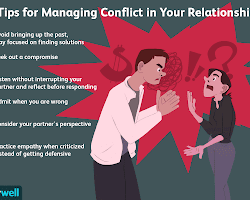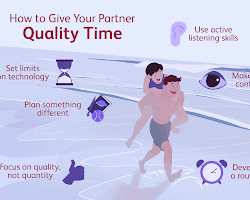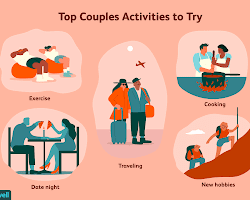In a world where relationships can be complex and challenging, seeking the guidance of relationship experts can offer valuable insights and solutions. This comprehensive article explores the benefits of seeking expert advice, effective communication strategies, and the various types of relationship experts available to help individuals navigate their relationship journey.
Relationships are an integral part of human life, shaping our emotions, experiences, and overall well-being. However, the path of love, companionship, and connection is not always smooth. As individuals navigate the intricate world of relationships, seeking expert advice becomes a pivotal step in achieving understanding, growth, and harmony.
Table of Contents
The Quest for Relationship Expertise
The quest for relationship expertise is driven by the universal desire to establish and maintain meaningful connections. Whether it’s romantic partnerships, friendships, or familial relationships, seeking expert guidance can provide individuals with the tools and knowledge to overcome challenges and thrive.
 Opens in a new window
Opens in a new window becomecharity.org.uk
becomecharity.org.uk
Navigating the Complexities of Relationships
Relationships are intricate webs of emotions, expectations, and dynamics. From miscommunications to differing viewpoints, the complexities of relationships require intentional efforts to ensure healthy interactions and mutual understanding.
Common Challenges in Relationships
Common Relationship Challenges Include:
- Communication Breakdowns: Misunderstandings and lack of effective communication can lead to conflicts.
- Conflict Resolution: Navigating disagreements and finding resolutions can be daunting.
- Trust Issues: Building and maintaining trust forms the foundation of any strong relationship.
- Balancing Individuality and Togetherness: Striking the right balance between personal independence and shared experiences is crucial.
 Opens in a new window
Opens in a new window anchorlighttherapy.com
anchorlighttherapy.com
Benefits of Seeking Expert Advice
Benefits of Expert Guidance:
- Objective Perspective: Experts provide unbiased insights, helping individuals see situations from various angles.
- Tailored Solutions: Advice is tailored to the unique dynamics of each relationship.
- Skill Enhancement: Learning effective communication and conflict resolution skills.
- Emotional Support: Experts offer guidance and empathy during challenging times.
Types of Relationship Experts
Various Types of Relationship Experts:
- Relationship Coaches: Provide guidance on personal growth, communication, and goal-setting.
- Marriage Counselors: Focus on strengthening marital bonds and addressing conflicts.
- Family Therapists: Help families navigate challenges and improve communication.
- Psychologists and Psychiatrists: Offer insights into mental health and its impact on relationships.
 Opens in a new window
Opens in a new window www.bozemancounseling.org
www.bozemancounseling.org
Effective Communication Skills
Championing Effective Communication:
- Active Listening: Paying attention and responding thoughtfully to understand the speaker’s perspective.
- Expressing Emotions: Sharing feelings openly while maintaining respect and understanding.
- Non-Verbal Communication: Recognizing body language cues to enhance understanding.
Conflict Resolution Strategies
Strategies for Healthy Conflict Resolution:
- Empathetic Approach: Understanding the other person’s viewpoint without judgment.
- Finding Common Ground: Identifying shared goals and areas of agreement.
- Taking Breaks: Stepping away during heated discussions to cool off and reflect.
 Opens in a new window
Opens in a new window www.verywellmind.com
www.verywellmind.com
Building Trust and Intimacy
Cultivating Trust and Intimacy:
- Consistency: Keeping promises and delivering on commitments.
- Openness: Sharing vulnerabilities and fears to deepen connection.
- Respect for Boundaries: Recognizing and respecting each other’s personal space and limits.
Balancing Independence and Togetherness
Achieving the Right Balance:
- Maintaining Hobbies: Pursuing individual interests to foster personal growth.
- Quality Time: Sharing meaningful experiences to strengthen the bond.
- Healthy Autonomy: Allowing space for personal growth without distancing the relationship.
Overcoming Relationship Ruts
Reigniting the Spark:
- Novel Experiences: Trying new activities together to infuse excitement.
- Open Dialogue: Discussing challenges openly and collaboratively finding solutions.
- Revisiting Memories: Reminiscing about shared experiences to reconnect.
When to Seek Professional Help
Indications for Seeking Expert Guidance:
- Persistent Conflict: Frequent arguments without resolution.
- Lack of Intimacy: Feeling emotionally distant from each other.
- Traumatic Events: Coping with the aftermath of significant life changes.
Online vs. In-Person Relationship Advice
Online Platforms and In-Person Sessions:
- Online Convenience: Accessing advice through virtual platforms for flexible assistance.
- In-Person Depth: In-person sessions offer deeper connections and personalized guidance.
Counseling and Therapy Options
Exploring Therapy Approaches:
- Cognitive-Behavioral Therapy: Identifying and changing negative thought patterns.
- Narrative Therapy: Restructuring narratives to empower individuals and relationships.
- Emotionally Focused Therapy: Focusing on emotional responses and attachment patterns.
Personal Growth through Relationship Challenges
Relationships as Catalysts for Growth:
- Self-Awareness: Reflecting on interactions to enhance self-understanding.
- Empathy Development: Learning to empathize with others’ perspectives.
- Resilience Building: Developing the ability to overcome challenges and setbacks.
Some of the ways that relationship challenges can lead to personal growth:
- Increased self-awareness: When you face challenges in your relationship, you are forced to take a closer look at yourself and your partner. This can lead to increased self-awareness and understanding.
- Improved communication: Learning to communicate effectively is essential for any healthy relationship. When you face challenges, you have the opportunity to practice your communication skills and to learn how to better express your needs and feelings.
- Developed problem-solving skills: Challenges can help you develop stronger problem-solving skills. When you work together to overcome a challenge, you learn how to identify problems, generate solutions, and implement those solutions.
- Greater resilience: Facing challenges and overcoming them can make you more resilient. Resilience is the ability to bounce back from difficult experiences. When you have faced challenges in your relationship and come out stronger, you will be better equipped to handle future challenges.
- Deeper intimacy: Challenges can also lead to deeper intimacy. When you work through challenges together, you build trust and understanding. This can lead to a stronger and more fulfilling relationship.
If you are facing relationship challenges, remember that they can be an opportunity for personal growth. By facing challenges and working through them, you can learn and grow as a person, and you can build a stronger, healthier relationship.
“Relationships are like gardens; with expert guidance, even the toughest challenges can be nurtured into flourishing bonds.”
Maya Johnson
Relationship challenges can be caused by a variety of factors, such as:
- Communication problems: When couples are unable to communicate effectively, it can lead to misunderstandings, resentment, and conflict.
- Trust issues: When trust is broken, it can be difficult to rebuild. This can lead to insecurity, jealousy, and anxiety.
- Differing values and goals: When couples have different values and goals, it can lead to conflict and frustration.
- Financial problems: Financial problems can put a strain on any relationship. It is important to be able to communicate openly about money and to be on the same page about financial goals.
- Cultural differences: When couples come from different cultures, it can be challenging to navigate the differences in values, beliefs, and expectations.
- Infidelity: Cheating can be a devastating experience for both partners. It can damage trust and intimacy, and it can be difficult to move on from.
There are many things that couples can do to overcome relationship challenges, such as:
- Communicating effectively: Couples need to be able to communicate openly and honestly with each other. This means being able to express their needs and feelings in a respectful way.
- Building trust: Couples need to rebuild trust if it has been broken. This takes time and effort, but it is essential for a healthy relationship.
- Setting boundaries: Couples need to set boundaries with each other and with others. This helps to protect their relationship and to avoid conflict.
- Seeking professional help: If couples are unable to overcome their challenges on their own, they may need to seek professional help. A therapist or counselor can help them to communicate better, resolve conflict, and build a stronger relationship.
Conclusion
Navigating the labyrinth of relationships requires dedication, understanding, and continuous efforts. Seeking relationship expertise and advice serves as a guiding light, illuminating the path toward healthier interactions, mutual growth, and enduring connections. By embracing effective communication, conflict resolution, and the insights of relationship experts, individuals can embark on a journey of building strong, fulfilling relationships that enrich their lives.
Read more articles





